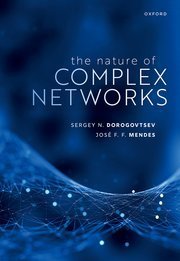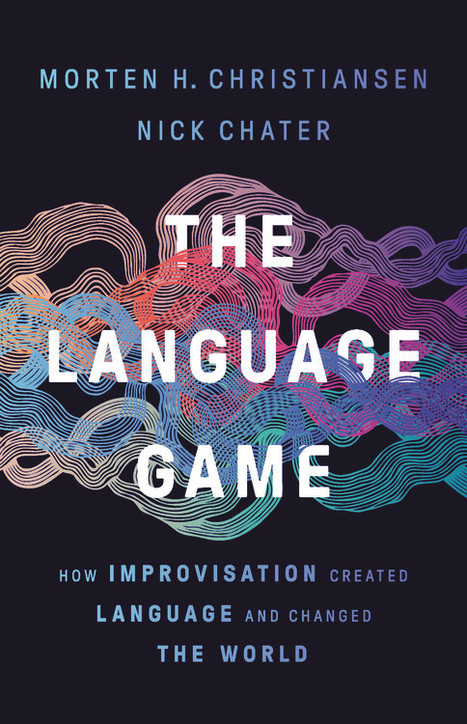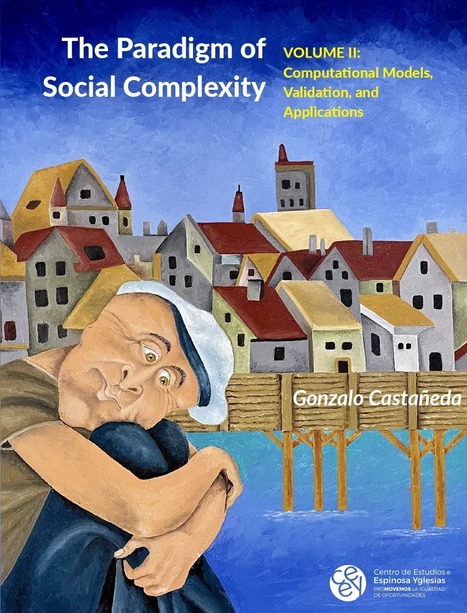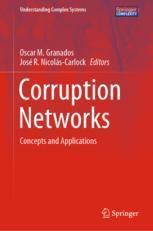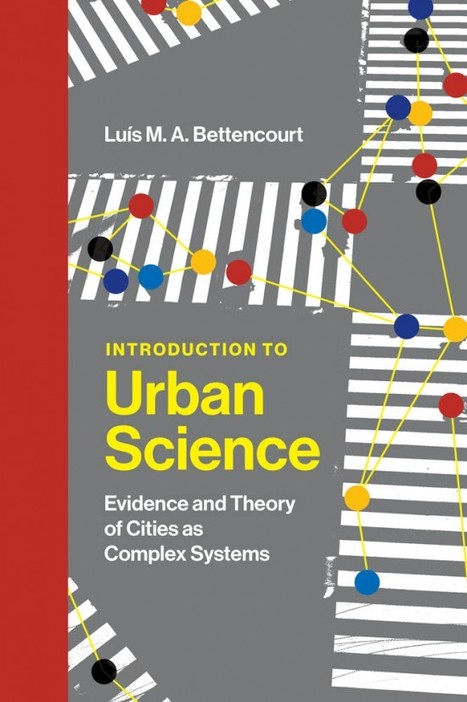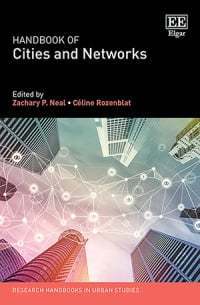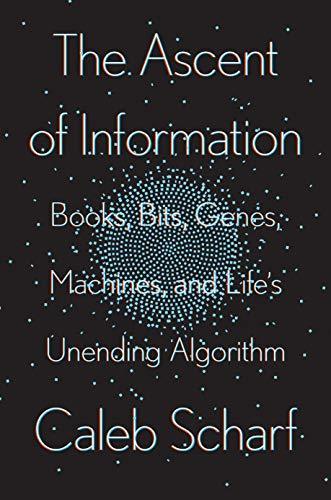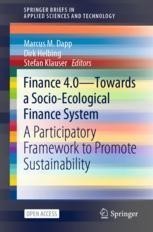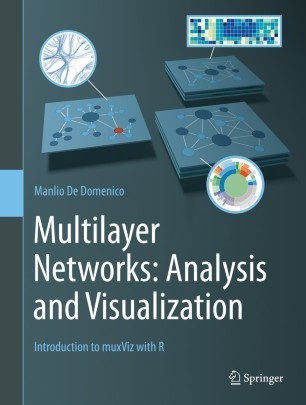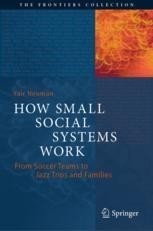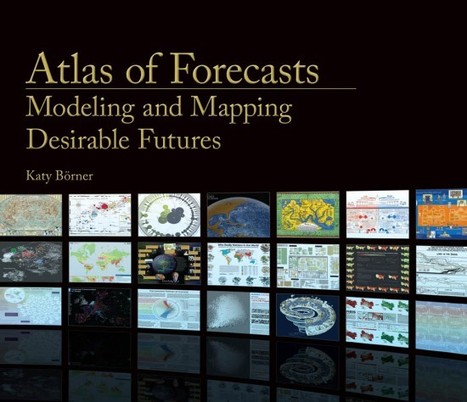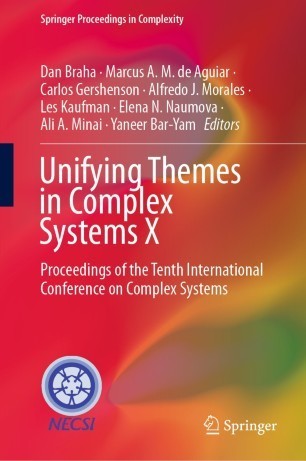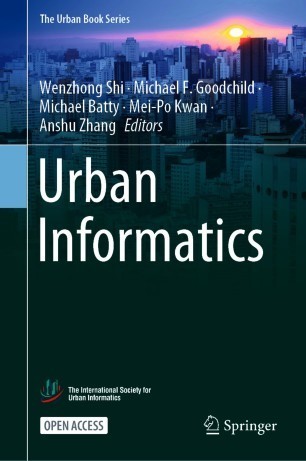 Your new post is loading...
 Your new post is loading...

|
Scooped by
Complexity Digest
June 26, 2022 4:43 PM
|
Sergey N. Dorogovtsev and José F. F. Mendes
Provides a systematic account of the statistical mechanics of complex networks
Covers recent trends, concepts, and theoretical techniques, and emphasises interdisciplinary strands
Broad appeal to researchers in complex systems including theoretical physicists and applied mathematicians as well as epidemiologists
Extensive bibliography and appendices offer excellent reference source for students and researchers More at: global.oup.com

|
Scooped by
Complexity Digest
March 7, 2022 4:46 PM
|
by Morten H. Christiansen and Nick Chater Forget the language instinct—this is the story of how we make up language as we go Language is perhaps humanity’s most astonishing capacity—and one that remains poorly understood. In The Language Game, cognitive scientists Morten H. Christiansen and Nick Chater show us where generations of scientists seeking the rules of language got it wrong. Language isn’t about hardwired grammars but about near-total freedom, something like a game of charades, with the only requirement being a desire to understand and be understood. From this new vantage point, Christiansen and Chater find compelling solutions to major mysteries like the origins of languages and how language learning is possible, and to long-running debates such as whether having two words for “blue” changes what we see. In the end, they show that the only real constraint on communication is our imagination. More at: www.basicbooks.com See Also: The Spontaneous Origins of Language

|
Scooped by
Complexity Digest
February 17, 2022 4:26 PM
|
Volume I: An Alternative Way of Understanding Societies and their Economies
Volume II: Computational Models, Validation, and Applications Gonzalo Castañeda With the recent developments in computing technologies and the thriving research scene in Complexity Science, economists and other social scientists have become aware of a more flexible and promising alternative for modelling socioeconomic systems; one that, in contrast with neoclassical economics, advocates for the realism of the assumptions, the importance of context and culture, the heterogeneity of agents (individuals or organisations), and the bounded rationality of individuals who behave and learn in multifaceted ways in uncertain environments. The book synthesises an extensive body of work in the field of social complexity and constructs a unifying framework that allows developing concrete applications to important socioeconomic problems. This one-of-a-kind textbook provides a comprehensive panorama for advanced undergraduates and graduate students who want to become familiar with a wide range of issues related to social complexity. It is also a pioneering text that can support professors who wish to learn techniques and produce research in this novel field.
After reviewing the main concepts, premises and implications of complexity theory, the book frames this vision within the history of economic thought. Then, it articulates a meta-theory in which interdependent agents are embedded in a social context and whose collective and decentralised behaviour generates socio-economic phenomena. Such a framework builds on theories from evolutionary, institutional and behavioural economics, as well as analytical sociology. The book then reviews different computational tools for modelling complex adaptive systems, such as cellular automata, networks, and agent-based models. It elaborates on their analytical advantages in comparison to equation-based models, and how they can be calibrated/estimated and validated with empirical data. Finally, the book advocates for the practical use of these computational tools and makes a case for policy applications and the study of causal mechanisms. More at: www.social-complexity.com

|
Scooped by
Complexity Digest
January 5, 2022 3:57 PM
|
Euan Mearns and Didier Sornette From 1966 to 1976, four large earthquakes shook the Bohai Bay rift basin of Northeast China. This prompted the Chinese to launch one of the world’s largest social and science experiments into earthquake prediction that would engage tens of thousands of common people. The climax of this came in February 1975 where a prediction was made hours before the Haicheng earthquake struck. Evacuation of the city of Yingkou and some rural districts saved thousands of lives. The Chinese were jubilant, believing they had cracked the earthquake prediction conundrum. Eighteen months later, however, on the 28th July, 1976, jubilation turned to despair when a great earthquake flattened the large industrial city of Tangshan resulting in 250,000 to 650,000 casualties. This book describes the geological, technical, political and sociological backgrounds to the Haicheng prediction success and the Tangshan prediction failure.
Ahead of the Tangshan earthquake, Chinese seismologists had accumulated significant information that suggested an earthquake was imminent and came close to making a prediction. With improved knowledge and vastly improved ability to accumulate, consolidate and analyse data, this book suggests that Tangshan could have been predicted today using techniques developed in China in that epic decade of discovery. Building on these insights, it also offers a viable future pathway towards earthquake predictions that combines the insights and organisation of the 1966-1976 Chinese prediction program with modern technologies, in order to facilitate data gathering, interpretation and sharing. More at: www.cambridgescholars.com

|
Scooped by
Complexity Digest
September 27, 2021 9:47 AM
|
Presents current theoretical, empirical, and operational efforts tackling corruption studies.
Introduces the relevance of evidence-based and network approaches to anticorruption.
Discusses the best ways to convert the obtained knowledge into public policy. More at: link.springer.com

|
Scooped by
Complexity Digest
September 11, 2021 4:14 PM
|
Edited by Jitka Čejková, Silvia Holler, Lisa Soros, Olaf Witkowski MIT Press This volume contains the proceedings of the 2021 Conference on Artificial Life (ALIFE 2021) which was originally scheduled to be held in Prague (Czech Republic) 19 - 23 July 2021, but because of the covid-19 pandemic and its repercussions, is being held virtually only. (https://2021.alife.org/). The International Conference on the Synthesis and Simulation of Living Systems (ALIFE) and the European Conference on Artificial Life (ECAL) have been the major meetings of the artificial life (ALife) research community since 1987 and 1991, respectively. Currently, these scientific gatherings are supported by the International Society for Artificial Life (ISAL) - a democratic, international, professional society dedicated to promoting scientific research and education relating to artificial life, including sponsoring this conference annually, publishing scientific journals and proceedings, and maintaining web sites related to artificial life. Read the full proceedings at: direct.mit.edu

|
Scooped by
Complexity Digest
August 13, 2021 9:24 AM
|
A novel, integrative approach to cities as complex adaptive systems, applicable to issues ranging from innovation to economic prosperity to settlement patterns. Human beings around the world increasingly live in urban environments. In Introduction to Urban Science, Luis Bettencourt takes a novel, integrative approach to understanding cities as complex adaptive systems, claiming that they require us to frame the field of urban science in a way that goes beyond existing theory in such traditional disciplines as sociology, geography, and economics. He explores the processes facilitated by and, in many cases, unleashed for the first time by urban life through the lenses of social heterogeneity, complex networks, scaling, circular causality, and information. Though the idea that cities are complex adaptive systems has become mainstream, until now those who study cities have lacked a comprehensive theoretical framework for understanding cities and urbanization, for generating useful and falsifiable predictions, and for constructing a solid body of empirical evidence so that the discipline of urban science can continue to develop. Bettencourt applies his framework to such issues as innovation and development across scales, human reasoning and strategic decision-making, patterns of settlement and mobility and their influence on socioeconomic life and resource use, inequality and inequity, biodiversity, and the challenges of sustainable development in both high- and low-income nations. It is crucial, says Bettencourt, to realize that cities are not “zero-sum games” and that knowledge, human cooperation, and collective action can build a better future. More at: mitpress.mit.edu

|
Scooped by
Complexity Digest
July 26, 2021 3:01 PM
|
Edited by Zachary P. Neal and Céline Rozenblat This Handbook of Cities and Networks provides a cutting-edge overview of research on how economic, social and transportation networks affect processes both in and between cities. Exploring the ways in which cities connect and intertwine, it offers a varied set of collaborations, highlighting different theoretical, historical and methodological perspectives. More at: www.e-elgar.com

|
Scooped by
Complexity Digest
June 19, 2021 12:43 PM
|
One of the most peculiar and possibly unique features of humans is the vast amount of information we carry outside our biological selves. But in our rush to build the infrastructure for the 20 quintillion bits we create every day, we’ve failed to ask exactly why we’re expending ever-increasing amounts of energy, resources, and human effort to maintain all this data. Drawing on deep ideas and frontier thinking in evolutionary biology, computer science, information theory, and astrobiology, Caleb Scharf argues that information is, in a very real sense, alive. All the data we create—all of our emails, tweets, selfies, A.I.-generated text and funny cat videos—amounts to an aggregate lifeform. It has goals and needs. It can control our behavior and influence our well-being. And it’s an organism that has evolved right alongside us. This symbiotic relationship with information offers a startling new lens for looking at the world. Data isn’t just something we produce; it’s the reason we exist. This powerful idea has the potential to upend the way we think about our technology, our role as humans, and the fundamental nature of life. The Ascent of Information offers a humbling vision of a universe built of and for information. Scharf explores how our relationship with data will affect our ongoing evolution as a species. Understanding this relationship will be crucial to preventing our data from becoming more of a burden than an asset, and to preserving the possibility of a human future. More at: www.amazon.com

|
Scooped by
Complexity Digest
May 25, 2021 5:47 PM
|
By Mariusz Stanowski The book Theory and Practice of Contrast completes, corrects and integrates the foundations of science and humanities, which include: theory of art, philosophy (aesthetics, epistemology, ontology, axiology), cognitive science, theory of information, theory of complexity and physics. Through the integration of these distant disciplines, many unresolved issues in contemporary science have been clarified or better understood, among others: defining impact (contrast) and using this definition in different fields of knowledge; understanding what beauty/art is and what our aesthetic preferences depend on; deeper understanding of what complexity and information are in essence, and providing their general definitions. Complexity means integration, value and goodness - concepts that seem to be neglected today. More at: www.routledge.com

|
Scooped by
Complexity Digest
May 9, 2021 12:02 PM
|
Dapp, Marcus M., Helbing, Dirk, Klauser, Stefan (Eds.) This Open Access book outlines ideas for a novel, scalable and, above all, sustainable financial system. We all know that today’s global markets are unsustainable and global governance is not effective enough. Given this situation, could one boost smart human coordination, sustainability and resilience by tweaking society at its core: the monetary system? A Computational Social Science team at ETH Zürich has indeed worked on a concept and little demonstrator for a new financial system, called “Finance 4.0” or just “FIN4”, which combines blockchain technology with the Internet of Things (“IoT”). What if communities could reward sustainable actions by issuing their own money (“tokens”)? Would people behave differently, when various externalities became visible and were actionable through cryptographic tokens? Could a novel, participatory, multi-dimensional financial system be created? Could it be run by the people for the people and lead to more societal resilience than today’s financial system (which is effectively one-dimensional due to its almost frictionless exchange)? How could one manage such a system in an ethical and democratic way? This book presents some early attempts in a nascent field, but provides a fresh view on what cryptoeconomic systems could do for us, for a circular economy, and for scalable, sustainable action. Read the full book at: www.springer.com

|
Scooped by
Complexity Digest
April 23, 2021 4:12 PM
|
Milena Oehlers and Benjamin Fabian Mathematics 2021, 9(8), 895 Research on the robustness of networks, and in particular the Internet, has gained critical importance in recent decades because more and more individuals, societies and firms rely on this global network infrastructure for communication, knowledge transfer, business processes and e-commerce. In particular, modeling the structure of the Internet has inspired several novel graph metrics for assessing important topological robustness features of large complex networks. This survey provides a comparative overview of these metrics, presents their strengths and limitations for analyzing the robustness of the Internet topology, and outlines a conceptual tool set in order to facilitate their future adoption by Internet research and practice but also other areas of network science. Read the full article at: www.mdpi.com

|
Scooped by
Complexity Digest
April 10, 2021 2:40 PM
|
Stefano Nolfi This book describes how to create robots capable to develop the behavioral and cognitive skills required to perform a task autonomously, while they interact with their environment, through evolutionary and/or learning processes. It focuses on model-free approaches with minimal human-designed intervention in which the behavior used by the robot solve its task and the way in which such behavior is produced is discovered by the adaptive process automatically, i.e. it is not specified by the experimenter. Read the full book at: bacrobotics.com
|

|
Scooped by
Complexity Digest
April 24, 2022 4:30 PM
|
Provides practical recipes to use muxViz for specific purposes, bypassing theoretical obstacles
Includes dozens of examples whose R code is provided and directly linked from inside the text
Comes with, and builds on, a significant extension of the muxViz platform that can be used without needing a GUI More at: link.springer.com

|
Scooped by
Complexity Digest
March 6, 2022 5:23 PM
|
Edited by Federico Battiston, Giovanni Petri This book discusses its potential to model real-world systems and how considering their higher-order organization can lead to the emergence of novel dynamical behavior. Over the last decades, networks have emerged as the paradigmatic framework to model complex systems. Yet, as simple collections of nodes and links, they are intrinsically limited to pairwise interactions, limiting our ability to describe, understand, and predict complex phenomena which arise from higher-order interactions. Here we introduce the new modeling framework of higher-order systems, where hypergraphs and simplicial complexes are used to describe complex patterns of interactions among any number of agents. This book is intended both as a first introduction and an overview of the state of the art of this rapidly emerging field, serving as a reference for network scientists interested in better modeling the interconnected world we live in. Read the full article at: link.springer.com

|
Scooped by
Complexity Digest
January 18, 2022 12:20 PM
|

|
Scooped by
Complexity Digest
November 22, 2021 1:07 PM
|
COVID-19 is the virus that proved the fragility of the world. It took only the simplest form of life to shake the connectivity and dependency of society. This book is a real-time record and recommendation from a community of complexity scientists reacting to the pandemic. Through nontechnical articles, interviews, and discussions spanning the early days of the pandemic through the fall of 2021, researchers seek ways to stay responsive to complexity when every force conspires toward simplicity. The Complex Alternative encompasses immunology, epidemiology, psychology, inequality, and collapse. It is an effort to preserve perspective at a time when partiality seeks dominion. Edited by David C. Krakauer and Geoffrey West, this book features the thoughts of more than sixty members of the Santa Fe Institute’s research community on the future of complexity science and the broader significance of science in the twenty-first century. More at: www.sfipress.org

|
Scooped by
Complexity Digest
September 20, 2021 2:40 PM
|
Written by some of the founders of complexity theory and complexity theories of cities (CTC), this Handbook expertly guides the reader through over forty years of intertwined developments: the emergence of general theories of complex self-organized systems and the consequent emergence of CTC.
Examining studies from the end of 1970 through to the current leading approach to urbanism, planning and design, the book provides an up-to-date snapshot of CTC. Insightful chapters are split into five parts covering the early foundations of the topic, the evolution of towns and cities and urban complexity, the links between complexity, languages and cities, modelling traffic and parking in cities, and urban planning and design. The Handbook on Cities and Complexity concludes with the contributors’ personal statements on their observations of COVID-19’s impact upon global cities.
This book will be an invaluable resource for those researching cities and complexity and also for scholars of urban studies, planning, physics, mathematics, AI, and architecture.
More at: www.e-elgar.com

|
Scooped by
Complexity Digest
August 31, 2021 12:02 PM
|
Most of us are intuitively familiar with small social systems, such as families and soccer teams. Surprisingly, though, most of us are unaware of how complex these systems are or of the fact that they have a unique character distinguishing them from both populations and individuals. The current manuscript, which emerged from high-level scientific publications on the subject, aims to bridge this gap in our understanding of small social systems. The book aims to explain, illustrate, and model the unique and fascinating nature of small (social) systems by relying on deep scientific foundations and by using examples from sport, movies, music, and the martial arts. To support its friendly exposition of challenging scientific ideas, the book also discusses entertaining questions such as (1) why inviting your mother-in-law to dinner might be a challenging event, for reasons you have never considered; (2) why soccer teams should be messy in order to win; (3) why Nazis are deeply wrong in their understanding of the importance of entropy; and (4) why “panda fighters” failed in the UFC (Ultimate Fighting Championship). More at: www.springer.com

|
Scooped by
Complexity Digest
August 2, 2021 11:36 AM
|
Forecasting the future with advanced data models and visualizations. To envision and create the futures we want, society needs an appropriate understanding of the likely impact of alternative actions. Data models and visualizations offer a way to understand and intelligently manage complex, interlinked systems in science and technology, education, and policymaking. Atlas of Forecasts, from the creator of Atlas of Science and Atlas of Knowledge, shows how we can use data to predict, communicate, and ultimately attain desirable futures. Using advanced data visualizations to introduce different types of computational models, Atlas of Forecasts demonstrates how models can inform effective decision-making in education, science, technology, and policymaking. The models and maps presented aim to help anyone understand key processes and outcomes of complex systems dynamics, including which human skills are needed in an artificial intelligence–empowered economy; what progress in science and technology is likely to be made; and how policymakers can future-proof regions or nations. This Atlas offers a driver's seat-perspective for a test-drive of the future. More at: mitpress.mit.edu

|
Scooped by
Complexity Digest
July 26, 2021 12:07 PM
|
Jitka Čejková, Silvia Holler, Lisa Soros, Olaf Witkowski (Eds) MIT Press The theme of ALIFE 2021 conference is ”Robots: The century past and the century ahead”, because we celebrate the centenary of Čapek's R.U.R. and the worldwide-used word “robot”, which comes from this play. The conference was originally scheduled to be held in Prague, the city where the play had its official world premiere in 1921. However, because of the covid-19 pandemic and its repercussions, ALIFE 2021 conference is virtual. Read the full proceedings at: direct.mit.edu

|
Scooped by
Complexity Digest
June 15, 2021 12:48 PM
|

|
Scooped by
Complexity Digest
May 12, 2021 3:49 PM
|
Francis Heylighen The present course intends to answer the question of what it means to be human. This question has traditionally been the subject of a domain known as “philosophical anthropology”. Anthropology is the science that studies humans—just as entomology studies insects, and herpetology studies reptiles. It does this by carefully observing the physical, social and cultural properties that characterize human beings. This includes the evolution of humans out of their ape-like ancestors. It also includes the behaviors that different groups of humans exhibit in their more “natural state”, for example as hunter-gatherers living in the rainforest as yet unaffected by our highly technological civilization. Philosophical anthropology complements these concrete observations and the resulting theories by studying what has been called the “human condition”. This concerns more existential questions about the meaning of human life:
Ø Who are we?
Ø What are we living for?
Ø What is our fundamental human nature?
Ø What are human values?
Ø What sets humans apart from other beings? Read the full book at: researchportal.vub.be

|
Scooped by
Complexity Digest
May 6, 2021 9:11 PM
|
Hermann Haken, Juval Portugali Four concepts make the title of this book: Synergetic cities which is a view on cites as complex systems from the perspective of Haken’s theory of synergetics; information, which is a view on cities as complex systems commencing from the perspective of information theory. Next come steady state and phase transition which are two central aspects of complex systems in general and of cities as complex systems. Our aim is to introduce and develop the above four notions and then to discuss their implication to three issues that stand at the core of current discourse on cities as complex systems: urban allometery (or scaling) and smart cities—both attract special attention in the discourse on cities of the last two decades, as part of the attempt to transform the study of cities into a science. The third issue, city planning, attempts to adapt the process of planning to the understanding, and reality, of cities as complex, adaptive self-organizing systems. Book at: link.springer.com

|
Scooped by
Complexity Digest
April 23, 2021 12:03 PM
|
Urban informatics is an interdisciplinary approach to understanding, managing, and designing the city using systematic theories and methods based on new information technologies. Integrating urban science, geomatics, and informatics, urban informatics is a particularly timely way of fusing many interdisciplinary perspectives in studying city systems. This edited book aims to meet the urgent need for works that systematically introduce the principles and technologies of urban informatics. The book gathers over 40 world-leading research teams from a wide range of disciplines, who provide comprehensive reviews of the state of the art and the latest research achievements in their various areas of urban informatics. The book is organized into six parts, respectively covering the conceptual and theoretical basis of urban informatics, urban systems and applications, urban sensing, urban big data infrastructure, urban computing, and prospects for the future of urban informatics. Open Access Book at: link.springer.com
|



 Your new post is loading...
Your new post is loading...

